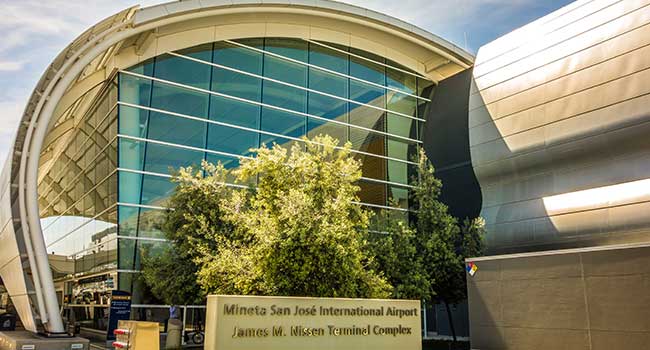
San Jose Airport Increases Security with New Technology
Rep. Eric Swalwell and Rep. Zoe Lofgren announced Tuesday that the Mineta airport and Miami International Airport were chosen by the Transportation Security Administration for the $10 million for equipment tests approved by Congress.
- By Jessica Davis
- Sep 20, 2018
Norman Y. Mineta San Jose International Airport in San Jose, Calif., has been chosen as one of two airports nationwide to test new technology for intrusion detection and deterrence, officials announced Tuesday. The new technology tests follow a 2015 incident involving a teenage stowaway that exposed flaws in the airport’s perimeter security.
In April 2015, a 15-year-old Somalian refugee slipped through the fencing surrounding the San Jose airport and stowed away in the wheel well of a plane. He had no malicious intent and was discovered when the jet landed in Hawaii, but the incident did raise concerns about how well the airport’s security measures worked.
Rep. Eric Swalwell and Rep. Zoe Lofgren announced Tuesday that the Mineta airport and Miami International Airport were chosen by the Transportation Security Administration for the $10 million for equipment tests approved by Congress.
“Many airports are far too vast to have personnel watching every inch of perimeter,” Swalwell said. “But new technology can serve as a force multiplier, letting us know when a breach happens anywhere, at any time, and help us catch intruders before they can do harm.”
TSA plans to test a variety of technologies at Mineta, including video cameras, under-vehicle screening, analytics software, radar, microwave, infra-red, laser, fence and ground sensors.
Radar, microwave and passive infra-red sensors would be able to cover a larger area than standard cameras, and laser sensors would help secure large sections of the airport’s perimeter, according to the offices of Swalwell and Lofgren. Fence sensors could detect bad actors climbing or cutting fencing around the airport’s perimeter, and unattended ground sensors could detect foot and vehicle traffic as well as digging near protected areas.
“By bolstering the technology deployed to keep our airport perimeter secure, we are taking steps to ensure the safety of businesses, travelers, and employees and help establish Mineta as the premier gateway to Silicon Valley,” Lofgren said.
The new technology will be installed at the two airports in December. Testing will continue through June 2019, and findings will be reported after testing ends.
About the Author
Jessica Davis is the Associate Content Editor for 1105 Media.